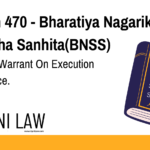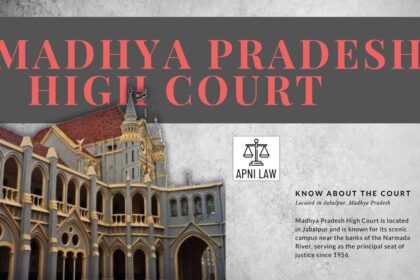Code – Section 80 BNS
(1) Where the death of a woman is caused by any burns or bodily injury or occurs
otherwise than under normal circumstances within seven years of her marriage and it is
shown that soon before her death she was subjected to cruelty or harassment by her husband
or any relative of her husband for, or in connection with, any demand for dowry, such death
shall be called “dowry death”, and such husband or relative shall be deemed to have caused
her death.
Explanation.—For the purposes of this sub-section, “dowry” shall have the same
meaning as in section 2 of the Dowry Prohibition Act, 1961.
(2) Whoever commits dowry death shall be punished with imprisonment for a term
which shall not be less than seven years but which may extend to imprisonment for life.
Explanation of Section 80 BNS
What Constitutes Dowry Death?
For a case to qualify as dowry death, the following conditions must be met:
- The woman’s death occurs within seven years of marriage.
- The death is unnatural, caused by burns, bodily injuries, or under suspicious circumstances.
- The woman was subjected to cruelty or harassment by her husband or his relatives.
- The cruelty was related to dowry demands.
Key Legal Aspects:
- Burden of Proof: The onus lies on the husband and his relatives to prove they were not responsible.
- Presumption of Guilt: Courts presume guilt if harassment for dowry is established before death.
- Connection with Other Laws: This section aligns with Section 2 of the Dowry Prohibition Act, 1961.
🔗 Read the Dowry Prohibition Act, 1961
Illustrations
Example 1: Death by Burning
A newly married woman dies in a kitchen fire within five years of marriage. Investigation reveals constant harassment for dowry by her husband’s family. The husband and in-laws are charged under Section 80 BNS.
Example 2: Suicide Due to Dowry Harassment
A woman is mentally tortured and forced to ask for money from her parents. Unable to bear the pressure, she dies by suicide. This qualifies as dowry death under Section 80 BNS.
Example 3: Unexplained Death Within Seven Years
If a woman is found dead under mysterious circumstances and there is evidence of dowry-related harassment, it automatically falls under dowry death provisions.
Common Questions and Answers on Section 80 BNS
1. Is dowry death a bailable offense?
- No, dowry death is a non-bailable and cognizable offense.
2. What is the punishment under Section 80 BNS?
- Minimum punishment: 7 years imprisonment.
- Maximum punishment: Life imprisonment.
3. Who can be held guilty under this section?
- The husband.
- Relatives of the husband (e.g., mother-in-law, father-in-law, brother-in-law).
4. Can dowry death be challenged in court?
Yes, but the onus is on the accused to prove that the death was not linked to dowry harassment.
5. How is this different from Section 79 BNS (Insulting Modesty of a Woman)?
- Section 80 BNS deals with unnatural death due to dowry harassment.
- Section 79 BNS covers verbal or physical acts that insult a woman’s modesty.
Conclusion
Section 80 of Bharatiya Nyaya Sanhita (BNS) is a strong legal provision aimed at preventing dowry-related deaths and punishing the offenders. Despite legal protections, dowry deaths remain a serious issue in India, making strict enforcement and awareness crucial.
For legal assistance and expert advice, visit ApniLaw today! 🚀








